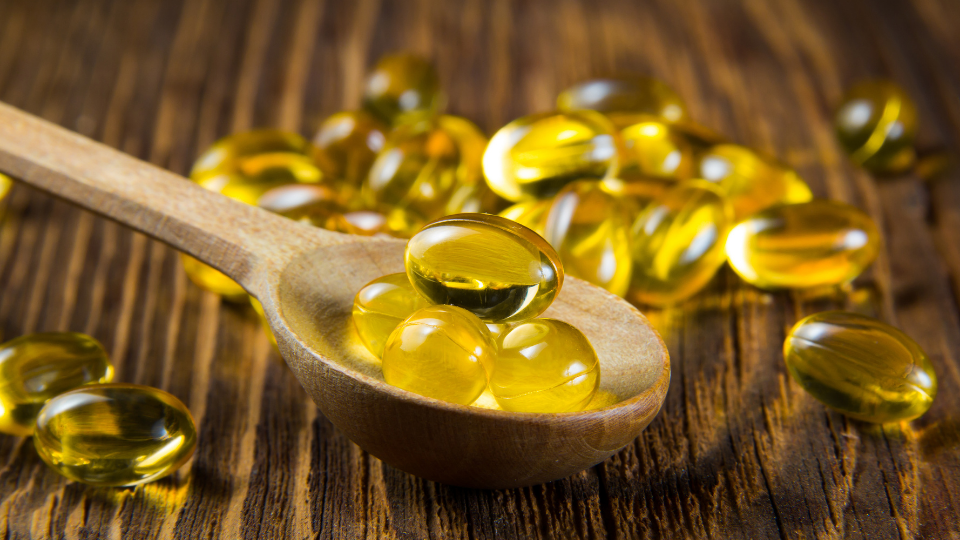
Vitamins for Boosting Immunity and Staying Healthy in 2022
Protecting your immunity has never been this important!
The human body is a highly complex system, which consists of millions of cells working together in an organized manner. This has made it difficult for scientists to study the different systems within the body and understand how they work individually. One way that researchers have been able to do this is by studying healthy people with very limited immune function, known as immunodeficiency.
Vitamins are known to be able to help boost our immune system. In this article, we will talk about some common vitamins that can help boost the immune system and why you should take them.
Vitamin C

Vitamin C is a water-soluble vitamin known to have antioxidant properties which means it can be used to protect cells from free radicals, which are unstable molecules that can damage healthy cells. As a water-soluble vitamin, vitamin C cannot be stored within the body and must be replaced daily. Luckily, this process can be achieved by eating a healthy diet.
Vitamin C is also known to support the immune system because it helps produce white blood cells that fight infection and defend against foreign pathogens such as viruses and bacteria. Furthermore, vitamin C has been shown to increase the speed of wound healing.
Vitamin C also helps produce blood vessels in the body, which can be beneficial in strengthening bones because vitamin C can help in the formation of collagen. Collagen is a protein that creates bone tissue which means it will increase bone mineral density when consumed daily.
Vitamin D3

Vitamin D3 is another fat-soluble vitamin that can help boost the immune system. As a fat-soluble vitamin, it must be consumed with other dietary fats to be better absorbed by the intestines. Vitamin D3 becomes active when it absorbs ultraviolet light from sunlight because ultraviolet light triggers its creation.
Once created, vitamin D3 enters the bloodstream and travels to the liver where it is converted into a prohormone. From there, this chemical will enter the kidneys and become active as calcitriol which is a hormone that can activate vitamin D receptors on cells.
The immune system benefits from vitamin D3 occur when the activated vitamin D interacts with immune cells to help them implement a few different immune functions. One of its first effects is that it can help T cells respond to antigens and stimulate the production of antibodies by B cells, making this vitamin beneficial during cold and flu season.
Vitamin E

Vitamin E is another fat-soluble vitamin that benefits the immune system because it can stop cells from undergoing oxidation, which is the process that produces free radicals. Another benefit of vitamin E that makes it useful in boosting immunity is its role in protecting red blood cells from cell damage or being destroyed by lipid peroxidation which can lead to anemia.
Vitamin E also plays a role in creating reactive oxygen metabolites, which are molecules that can help activate the immune system. Furthermore, vitamin E can play a role in protecting DNA from damage which reduces the risk of cancerous cell mutations.
Finally, studies have shown that vitamin E can boost energy production and mitochondrial function because it is known to work with Coenzyme Q10 (CoQ10), an antioxidant that is necessary for mitochondria to function properly.
Vitamin A

Lastly, vitamin A helps with immunity even though it is not a vitamin that is classified as essential because it can be synthesized in the body from beta-carotene which comes from plants. Vitamin A has been shown to help create and maintain lymphocytes and macrophages, both of which are white blood cells that help defend against foreign pathogens and other bacteria.
One benefit of vitamin A is that it can aid in the production of cytokines, proteins that communicate messages within the immune system to trigger responses for different immune functions. Furthermore, vitamin A plays an important role in gene transcription because it’s able to help regulate DNA synthesis.
Summary
Overall, all of these vitamins work together to help aid the immune system and make it easier for the body to fight off foreign pathogens such as viruses and bacteria. The best way for you to take advantage of all the benefits that these vitamins have to offer is by eating a healthy diet daily.
Also, vitamin supplements can be beneficial but only if they are being consumed to correct a vitamin deficiency. For example, you should take a multivitamin that contains 100% of the daily value for each vitamin if you feel as though your diet may be lacking in one or more vitamins.
So, as long as you’re eating healthy and taking supplements as needed, you will have nothing to worry about when it comes to having a healthy immune system.

